Students in arts administration share their passion for the arts and the opportunities that have come from pursing an arts administration degree.
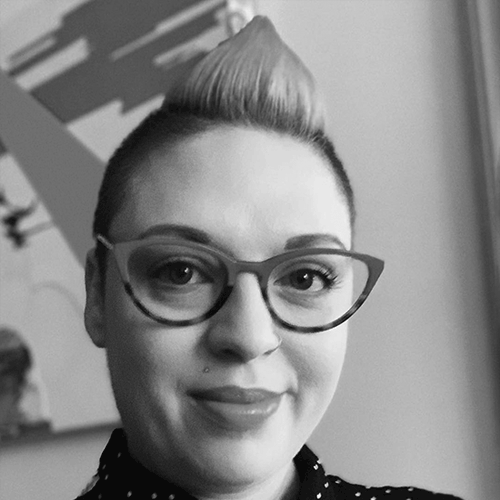
Rebecca Ferrell
Arts Administration Ph.D. Program, University of Kentucky
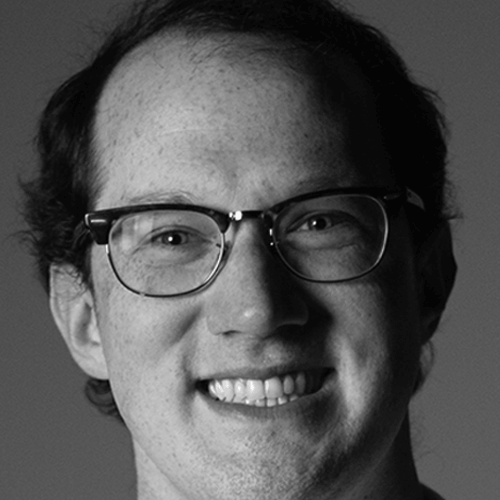
Jackson Cooper
MFA in Arts Leadership, Seattle University
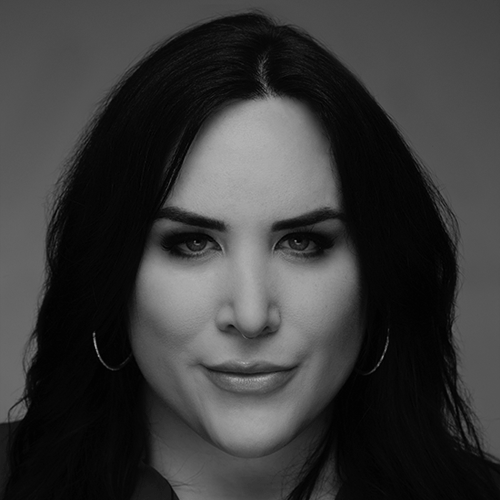
Charlie Wall-Andrews
Ph.D. in Management, Ted Rogers School of Management

Tom Abruzzo
Masters in Arts Leadership and Cultural Management, Colorado State University
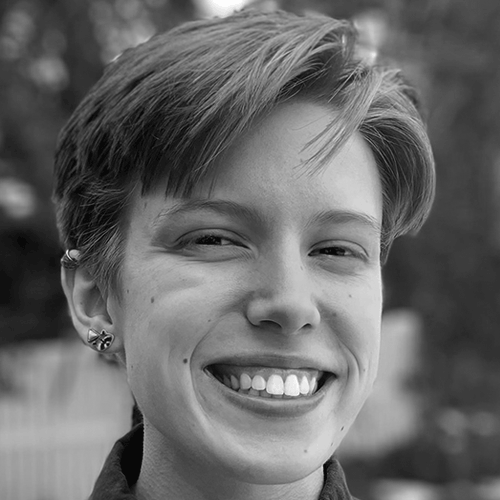
Katie Steele
Arts Administration, Interdisciplinary Studies and Music Performance, SUNY at Fredonia
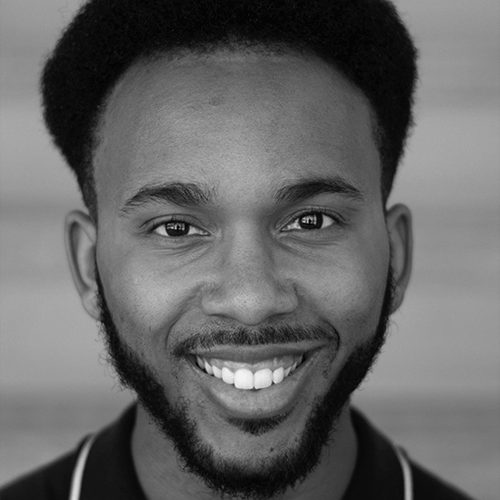
Trés McMichael
MFA in Arts Leadership, Seattle University
When did you know you wanted to pursue a career in the arts? How did you discover degrees in arts administration?
Rebecca Ferrell: The arts have been an integral part of my entire life, and I have had tremendous opportunities to learn and be mentored by amazing dancers, choreographers, and teachers throughout my career. Through those experiences, including attending a performing arts high school, I knew a career in the arts was possible. While I had taken grant writing and nonprofit management courses sporadically during my undergraduate and graduate studies, my focus was primarily on dance performance. Once I stepped into leadership roles within the nonprofit dance sector, the importance of a more formalized arts administration educational experience became clear, and I was thankful to find a PhD program that could offer me flexibility through online classes without compromising on research rigor.
Jackson Cooper: I started in the offices of North Carolina Theatre, a major regional theatre in Raleigh. My desire was less about being on stage and more about gathering artists and audiences around an evening of joyous art that celebrates our human spirit. I had known that arts management was not something that was offered as an undergraduate degree and was usually exclusively a graduate program. When I began my coursework at UNC-Greensboro, I pieced together a degree in arts administration through the theatre and business departments to better prepare myself to apply for those graduate programs. It has been refreshing to see more and more undergraduate arts administration programs being offered, as it prepares students for careers in the arts.
Charlie Wall-Andrews: I started lecturing at the University of Toronto and truly enjoyed being part of the academic community. Over time, I found myself involved in research projects, which ignited my curiosity to explore opportunities to pursue further studies. There isn’t Ph.D. in Arts Management in Canada, so the Ph.D. in Management allowed me to further develop my skills to conduct my research focusing on the arts sector.
Why did you choose to pursue your specific degree program?
Tom Abruzzo: Completing my master’s degree was the first time I had ever considered arts administration as an academic field. I immediately became interested in the praxis of best practices in arts management and the science of creating and discovering new knowledge to advance our field. I also developed a particular lens of social justice while pursuing this degree. This is something I’ve always believed in vehemently, but now I was interested in considering how my beloved field of study could be better and more equitable. This sparked my interest in pursuing my PhD in Leadership Studies.
Katie Steele: Though SUNY Fredonia did not offer a major in Arts Administration when I enrolled, the minor in Arts Administration drew me to the school. I was enticed by the minor’s high level of customization and focus on experiential learning. As an institution, SUNY Fredonia is known for its stellar music and theater programs and for its talented and dedicated faculty. A major artistic hub within its region, SUNY Fredonia is home to several community arts organizations, and its faculty members are influential community arts leaders. I knew that these institutional connections would present me with opportunities to work with and learn from dynamic arts organizations, and they have many times over. At Fredonia, I saw the unique opportunity to pursue several of my academic interests simultaneously and to be immersed in a thriving arts scene.
Trés McMichael: I chose to pursue my MFA at Seattle University because of the focus on social justice at its core. The topics of anti-racism, intersectionality, and decolonization have shown up during each of my courses. We engage in thoughtful and challenging discourse about these subjects and discuss how to create a more just and liberated world through our work in the arts. I have been able to show up fully and authentically as a queer Black man since my first class. It has been freeing for me as I continue to grow in the field and work towards the change I know we need in the world with others who want to see that same change.
What career path are you considering once you graduate?
TM: Once I graduate, I would like to continue focusing on community engagement and anti-racism in the arts and cultural sector, specifically in the performing arts. My personal philosophy is that the work we do in the arts should be in and with community, not to or for. I want to continue doing that work and creating spaces where joy is always at the center of our art making.
RF: I have a fierce commitment to providing visibility to artists while carefully considering the conditions of the world in which they are creating. While I am currently able to weave together the artistic, administrative, and pedagogical threads of the dance field into a sustainable and fulfilling career, I am gravitating towards a political position in the future as an arts commissioner.
JC: I plan to continue in the arts fundraising field and pursue teaching opportunities to inspire the next generation of community-centered development professionals.
What advice do you have for students considering a degree in arts administration?
TA: I’ve found that pursuing the field of arts leadership and cultural management is an incredibly interdisciplinary journey. You’ll find that you are studying alongside musicians, actors, school administrators, museum workers, physical artists, venue managers, stage managers, and more. No one will be exactly like you in your field. While you will have much to learn from others, don’t be afraid to lean into your true voice and passion even if you are the only one with your specific interest. Leverage the uniqueness of your peers and the uniqueness of you in ways that other fields of study don’t necessarily get to enjoy.
RF: Never stop asking questions and be brave enough to ask the questions you are afraid of — the questions you think might not even have an answer. That is where some of the best learning you will ever experience starts to grow. The arts need more people who are willing to shift the status quo and embrace innovation. That will truly make the arts more equitable and inclusive.
JC: Be constantly curious and always center the work. Remind yourself of why you are doing it — go into the rehearsal room, watch a dress rehearsal, go see the shows you’re promoting. Always have the art at the center of what you do.

